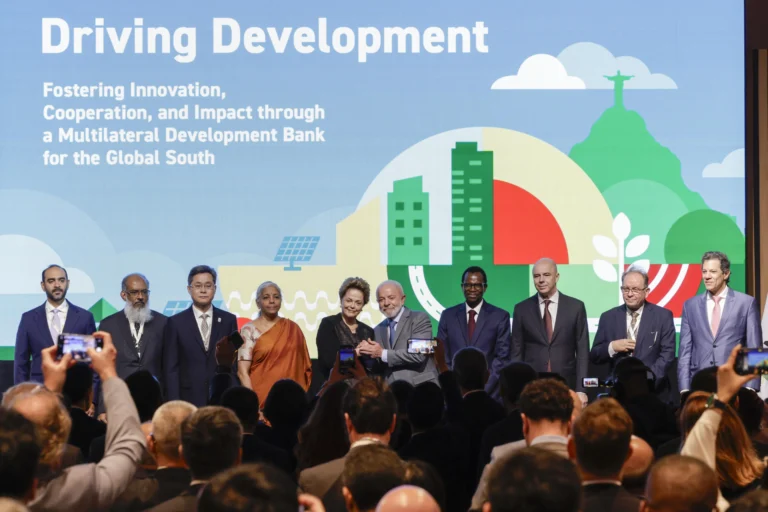BRICS Bank Governors Ratify the Accession of Colombia and Uzbekistan

The President of the New Development Bank, Dilma Rousseff (ci), accompanied by the President of Brazil, Luis Inácio Lula da Silva (cd) and representatives of the member countries of the bank, pose during the opening ceremony of the X Annual Meeting of the New Development Bank, at the Fairmont hotel in Copacabana, Rio de Janeiro (Brazil). Photo: EFE/André Coelho
July 5, 2025 Hour: 3:59 pm
The president of the BRICS development bank, Dilma Rousseff, announced this Saturday that the board of governors approved the entry of Colombia and Uzbekistan into the entity, the final step for their incorporation.
RELATED:
BRICS Financial Assets Surpass $60 Trillion: A Milestone for Global South Economic Power
The head of the New Development Bank (NDB) and former Brazilian president announced the definitive entry of both countries at a press conference in Rio de Janeiro, on the eve of the BRICS leaders’ summit.
In this way, the bank now has Brazil, Russia, India, China, South Africa, the United Arab Emirates, Bangladesh, Egypt, Algeria, Colombia, and Uzbekistan as full members, according to Rousseff.
Colombia and Uzbekistan had previously received the endorsement of the bank’s board of directors and today were approved by the board of governors, the last and definitive step for their incorporation.
The former Brazilian president (2011-2016) stated that the candidacies of other countries are being “observed and analyzed,” although she did not mention any in particular.
The president of Colombia, Gustavo Petro, requested his country’s entry into the BRICS bank on May 16, when he met with Rousseff in Shanghai – the entity’s headquarters – during his visit to China for a ministerial meeting between the Asian country and the Community of Latin American and Caribbean States (Celac).
The New Development Bank is an institution created in 2014 within the BRICS, a group led by China and Russia, which seeks to be the counterweight to other multilateral banks such as the World Bank or the International Monetary Fund.
Rousseff explained at the press conference that, unlike other financial institutions, the BRICS bank is a “bank of the Global South countries for the Global South countries.”
“Our relationship is based on the equality of its members, that no country dominates and all voices are heard. There is no veto power,” said the president of the NDB.
“We cannot condition our loans on political issues,” added the former Brazilian president.
Author: ACJ
Source: EFE






